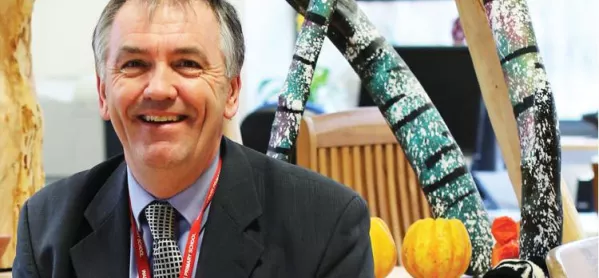Talking to colleagues at the start of the school year should be an exciting and encouraging experience, one that’s all about thinking positively for the year ahead. However, a conversation last week showed that in some places it can be quite the opposite.
An ex-colleague was telling me about a meeting held at their school in the first week of term to discuss pupil progress data. It was not about the children, what they are like, their personalities, their strengths. No, what the senior leadership team wanted to know was what their results were going to be at the end of the year. This, after only two days.
We have reached the stage where our pupils are now just numbers in a giant machine; any hope of them being seen as individuals has long since disappeared. It would appear that the government has now achieved its aim of cloning all our pupils in our schools.
I once knew a time when the vast majority of teachers were individuals and proud of it. Over the years, this appears to have been driven out of so many of them. Now the same is being done to pupils.
When we measure the progress of our pupils, we look at just a narrow set of parameters. We then say whether they are “on target” or not. Of course, we appreciate that the scores achieved do not necessarily represent a pupil’s overall level of understanding or knowledge, but that is deemed irrelevant because scores are what our education system is guided by.
‘Insatiable desire for results’
Many of our children now receive an education that is totally inappropriate for their developmental needs, all because of the insatiable desire to achieve the “results” needed by the school.
It should not be beyond our capabilities to create a new set of data for our pupils, a set that requires more than the test results. In there, we could include things such as a pupil’s attitude, or their work ethic. We could discuss their creative abilities. We could also talk about self-confidence or self-worth. If there were more emphasis on these aspects, we could get away from the idea of school life being regarded as either a success or a failure, depending on the individual’s test results.
For me, there are five competencies essential for adulthood and the ability to become a lifelong learner:
- Be able to think for oneself.
- Be able to use language appropriately.
- Be numerate.
- Be able to manage and control oneself.
- Be able to forge relationships with others.
These, inevitably, enable people to be able to participate and be part of a team. They are more important now than ever before. We have to get them in a set of data. We have to make it possible. Because what we have now does not do our children justice.
Colin Harris led a school in a deprived area of Portsmouth for more than two decades. His last two Ofsted reports were ‘outstanding’ across all categories
To read more of Colin’s articles, visit his back catalogue
Want to keep up with the latest education news and opinion? Follow Tes on Twitter and like Tes on Facebook




